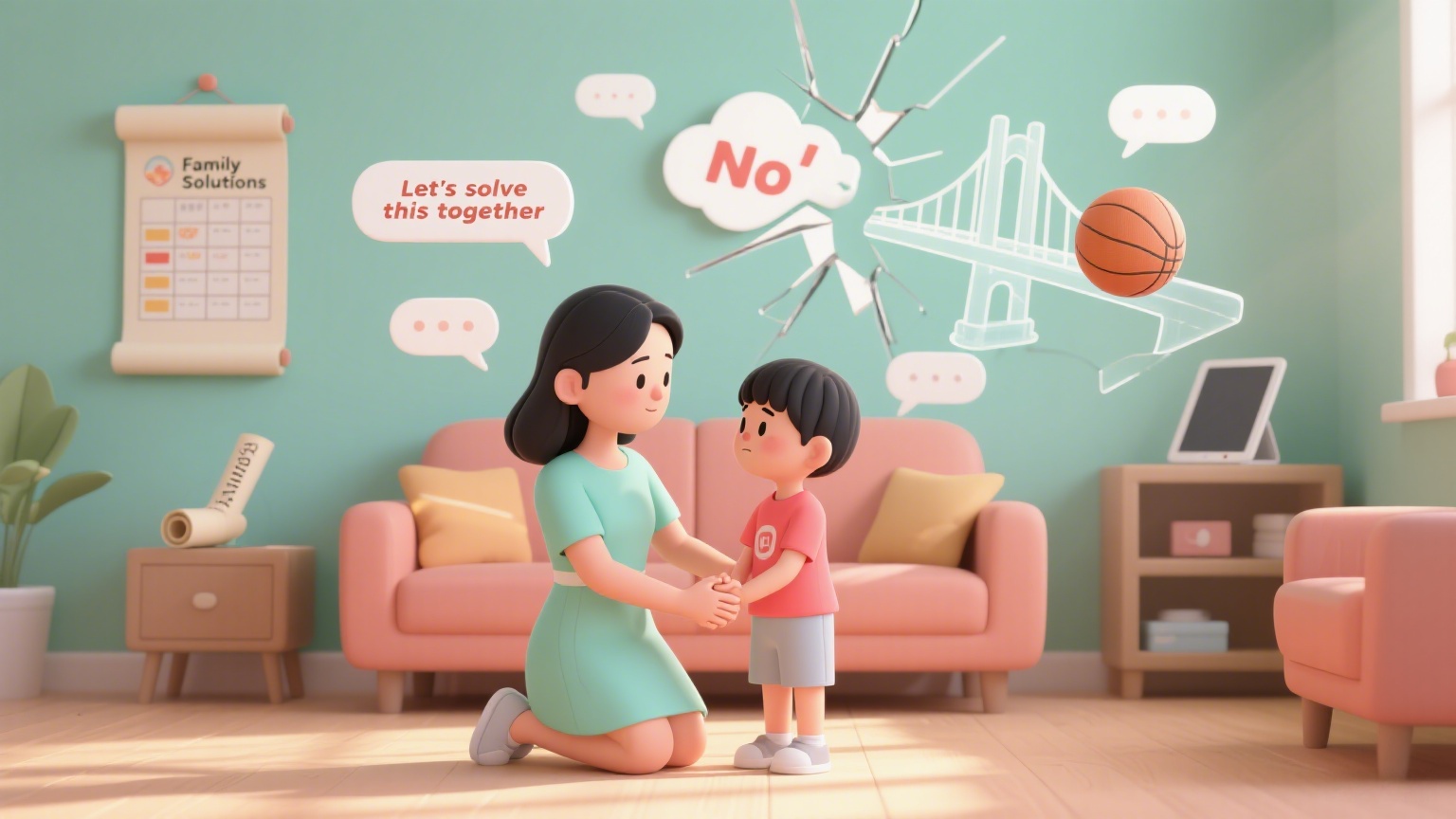When your child breaks rules—like sneaking the iPad or playing ball indoors—it’s tempting to label them as “defiant.” But what if their behavior is actually a cry for connection or control? Here’s how to respond with empathy while maintaining boundaries.
1. Assume the Best (Not the Worst)
Instead of thinking “They’re being disrespectful,” try the Most Generous Interpretation (MGI):
- “They’re struggling with impulse control because [X] is so exciting to them.”
- “They need more opportunities to feel independent.”
Example:
When they grab the iPad, say:
“I see how much you love your game! Let’s finish [task] first, then you can play for 20 minutes.”
2. Problem-Solve Together
Rules work better when kids help create them.
Instead of:
“No screens until your bed is made!”
Try:
- Acknowledge feelings: “I get it—making beds isn’t fun. What would make it easier?”
- Brainstorm solutions:
- A silly “bed-making song”
- A sticky note reminder
- Racing a timer for fun
3. Offer Controlled Choices
Kids often misbehave to feel powerful. Counter this by:
✅ “Do you want to do homework before or after snack?”
✅ “Should we put the toys away now, or in 5 minutes?”
Avoid:
❌ Empty threats (“No dinner if you don’t listen!”)
❌ Giving in to tantrums (teaches them meltdowns work)
4. When to Bend (and Not Bend) Rules
Good flexibility:
“You barely ate lunch—you can have an apple now, but dinner is still at 6 PM.”
Bad flexibility:
Ignoring rules because you fear their reaction. This teaches:
“My anger controls my parents.”
5. If They Constantly Rebel
Phrases like “This rule is dumb!” signal a deeper issue.
How to reconnect:
- Name the pattern calmly:
“I notice you say ‘no’ a lot lately. That tells me we need to fix something between us.” - Listen without defending:
- If they say “You’re mean!”, respond:
“It sounds like you’re really frustrated. I want to understand.”
- If they say “You’re mean!”, respond:
- Collaborate on solutions:
“Let’s make a new plan we both think is fair.”
Key Mindset Shift
“Disobedience isn’t about me—it’s about their unmet needs.”
Remember:
- Validate feelings (“You wish you could play longer—I get that!”)
- Stay consistent with core rules
- Repair conflicts with hugs, not guilt
Change takes time, but connection builds cooperation. 💙








